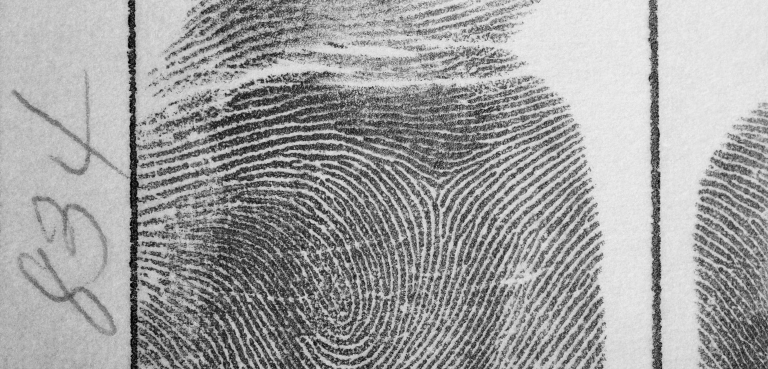True Crime Stories — Willie Grimes
Fingerprints are not only useful for solving crimes, but also for helping to prove the innocence of people who have been wrongly accused or convicted, sometimes even after they have spent many years in prison.
In 1987, a stranger knocked on the door of a 69-year-old woman, Carrie Elliot, in Hickory, North Carolina. He then forced his way into her house and raped her twice. Afterwards, Elliot tried to scare him off by saying her neighbor was coming soon, but her attacker knew her neighbor’s name and chillingly told her she wasn’t coming and that there was no one that could help her. He finally left on his own accord after stating he was hungry. As he was leaving her house, he picked through her fruit bowl, ate some and left.
The victim told the neighbor about the assault a few days later and the neighbor thought the description sounded like her sister’s ex-boyfriend, Willie Grimes. She asked if there was a reward for information and after finding there was, she called the police and collected the reward for her tip.
The evidence against Willie Grimes was weak at best. Besides the tip from the neighbor, the main evidence was a hair found on the scene that was “microscopically consistent” with Willie Grimes, but it really just indicated that it came from an African American. Even when the victim was asked to identify her attacker in the courtroom, she pointed to the attorney of Willie Grimes instead of Willie. Willie also had a strong alibi on the night of the crime — he was with a group of eight friends all night. Also, those who knew him characterized him as a shy, gentle man who respected women.
Despite the lack of any real evidence, a jury with 11 white members convicted him of two counts of first-degree rape and one count of second-degree kidnapping after deliberating for just one hour. He was sentenced to life plus nine years in prison. The testimony from the neighbor may have been the key to the false conviction. It wasn’t the first time she collected money for a crime tip, and it complicated the case.
While imprisoned, Mr. Grimes actively fought to prove his innocence. After a series of dead ends, the North Carolina Innocence Inquiry Commission became involved in the case. The Commission was able to locate a record of the latent fingerprint evidence taken from fruit at the crime scene. The fingerprint evidence was then submitted to the state and FBI AFIS, which returned a match to a man named Albert Turner.
Turner was the initial suspect in the crime, but the police stopped the investigation after the neighbor had identified Grimes. Turner had a violent past and had been arrested over 90 times in his lifetime, including 23 times for assault.
Inexplicably, the prints from the fruit were never introduced as evidence in the original trial and the defense team claimed they were not aware it existed. Oversights such as this as well as a series of other investigative mistakes resulted in Grimes, an innocent man, being wrongly convicted and spending nearly 25 years in prison.
The Center of Actual Innocence was able to bring the case to a new panel of judges. A local news station said Grimes told the court that he had a chance to get out of prison ten years before, but that would have required him to admit his guilt and take certain classes. "I told them I would stay in there forever before I would admit to something I didn't do." The judges deliberated for only 30 minutes before deciding to exonerate Grimes of all charged crimes.
It is unfortunate that so many things went wrong in this case that resulted in Willie Grimes being falsely accused and imprisoned. Fortunately, Grimes was determined to eventually prove his innocence through persistence and fingerprint technology. To learn about the technology behind stories like this one, explore HID's solutions for criminal justice and courtroom identification.
Russell Megonigal is an expert in biometric identity hardware and SDK portfolios. Before joining Crossmatch, a world leader in biometric identity management solutions that became part of HID Global in 2018, he worked for two of the largest suppliers of point-of-sale software and hardware for restaurants. Russell has 20 years of experience in the technology industry, including 15 years as a product manager.
